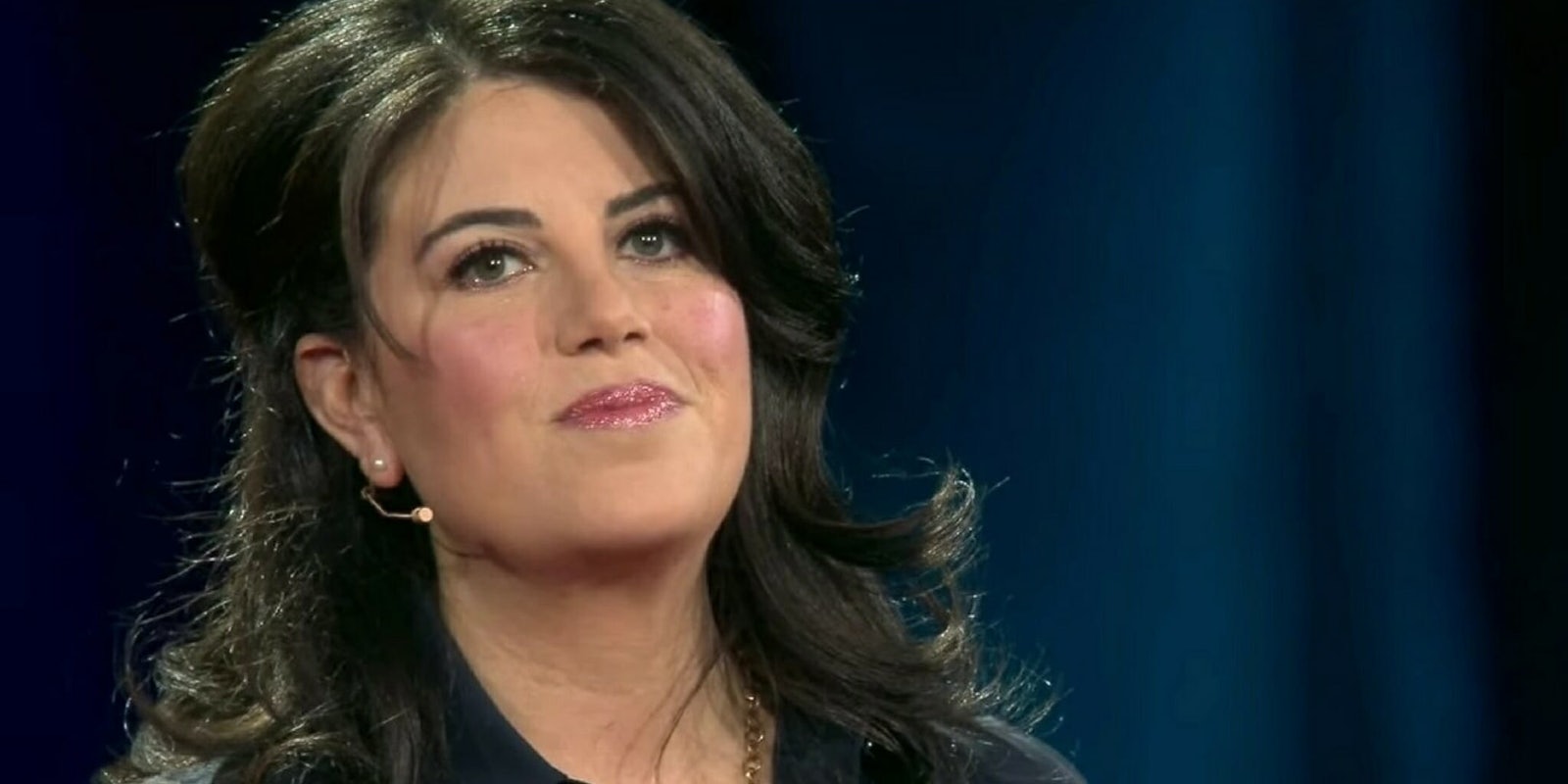On the 20th anniversary of Ken Starr’s investigation into former President Bill Clinton, and subsequently his extramarital relationship with Monica Lewinsky, the former White House intern-turned-anti-bullying advocate reflected on the past two decades in a piece for Vanity Fair‘s March 2018 issue, as well as what she has learned from the #MeToo movement.
In her piece, Lewinsky details what it’s like having lived “for so long in the House of Gaslight,” sharing that she has post-traumatic stress disorder from years of being publicly humiliated on Saturday Night Live, late-night talk shows, and hundreds of articles across major news outlets. She explores her isolation, and subsequent loneliness she faced for having to deal the backlash privately, even despite kind letters and her family’s support.
But she says it was seven words that undid her, written by a leader in the Me Too movement in a private exchange: “I’m sorry you were so alone.” Reflecting on how the movement against sexual harassment and assault has expanded, Lewinsky theorized that had the Starr investigation happened today, she wouldn’t have felt so isolated:
One of the most inspiring aspects of this newly energized movement is the sheer number of women who have spoken up in support of one another. And the volume in numbers has translated into volume of public voice. Historically, he who shapes the story (and it is so often a he) creates “the truth.” But this collective rise in decibel level has provided a resonance for women’s narratives. If the Internet was a bête noire to me in 1998, its stepchild—social media—has been a savior for millions of women today (notwithstanding all the cyberbullying, online harassment, doxing, and slut-shaming).
Interestingly enough, while Lewinsky’s story doesn’t completely fit into the narrative of sexual assault and harassment (because she said the relationship was consensual), she wrote that the movement has allowed her to rethink and better understand the role that abuse of power and power dynamics played in her own relationship with Clinton.
For two decades, while attempting to work through her trauma, Lewinsky wrote that she so strongly clung to the narrative of sexual agency and “owning desire” instead of admitting that she was somehow a “victim.” But now, at 44, Lewinsky said she’s “just beginning” to understand this belief of “consent” in the context of the power imbalance that Clinton held over her.
Just four years ago, in an essay for this magazine, I wrote the following: “Sure, my boss took advantage of me, but I will always remain firm on this point: it was a consensual relationship. Any ‘abuse’ came in the aftermath, when I was made a scapegoat in order to protect his powerful position.” I now see how problematic it was that the two of us even got to a place where there was a question of consent. Instead, the road that led there was littered with inappropriate abuse of authority, station, and privilege. (Full stop.)…
But it’s also complicated. Very, very complicated. The dictionary definition of “consent”? “To give permission for something to happen.” And yet what did the “something” mean in this instance, given the power dynamics, his position, and my age? Was the “something” just about crossing a line of sexual (and later emotional) intimacy? (An intimacy I wanted—with a 22-year-old’s limited understanding of the consequences.) He was my boss. He was the most powerful man on the planet. He was 27 years my senior, with enough life experience to know better. He was, at the time, at the pinnacle of his career, while I was in my first job out of college. (Note to the trolls, both Democratic and Republican: none of the above excuses me for my responsibility for what happened. I meet Regret every day.)
Ultimately, Lewinsky hoped that in light of the Me Too and Times Up movements shifting the public perception of women who come forward about sexual misconduct, that people undergoing their trauma or just now coming to terms in understanding their trauma have access to the help and resources they need to recover.
“Until recently (thank you, Harvey Weinstein), historians hadn’t really had the perspective to fully process and acknowledge that year of shame and spectacle. And as a culture, we still haven’t properly examined it. Re-framed it. Integrated it. And transformed it,” Lewinsky wrote. “My hope, given the two decades that have passed, is that we are now at a stage where we can untangle the complexities and context (maybe even with a little compassion), which might help lead to an eventual healing—and a systemic transformation.”
H/T Jezebel
